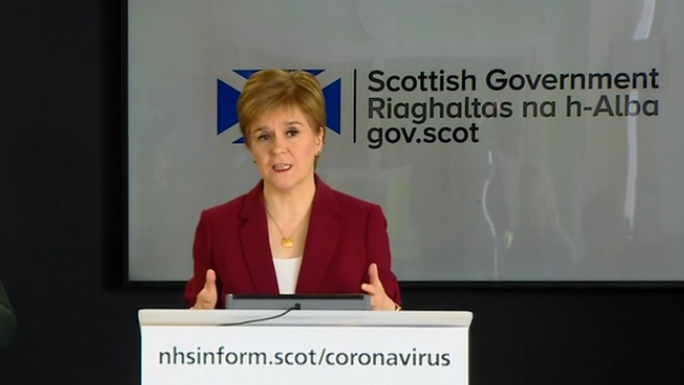Coronavirus: Scotland's death toll reaches 41
- Published
Coronavirus: 'Scotland Cares' volunteer scheme announced to fight virus
New figures show, external 41 people with Covid-19 have now died in Scotland, up one from the numbers released on Saturday.
Tests confirmed 1,384 people have the virus. This shows an increase of 139 confirmed cases.
However, the real number of cases is believed to tens of thousands because only those serious enough to be admitted to hospital are currently being tested.
A total of 95 people are being treated in intensive care.
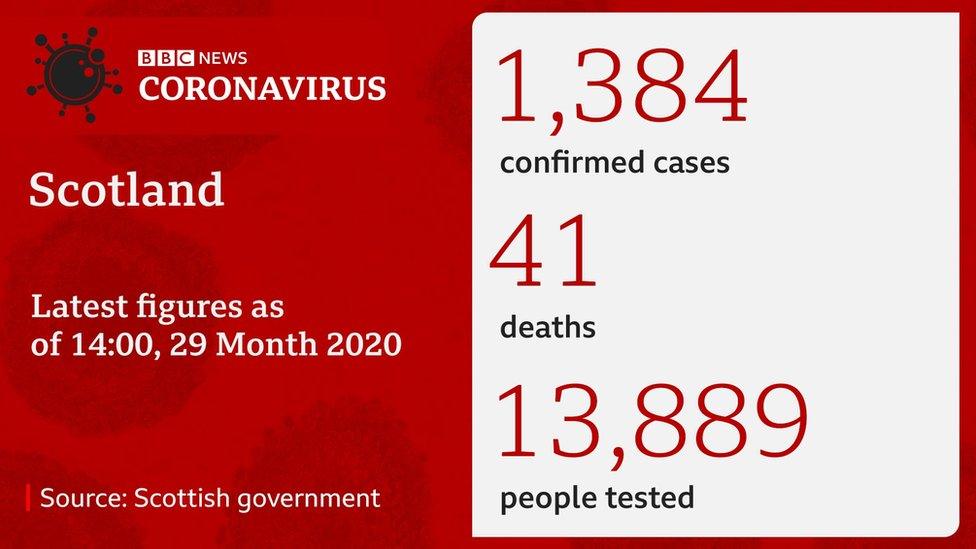
It comes as Scotland's chief medical officer warned on Sunday morning that restrictions placed on movement were needed for "at least 13 weeks" to stop the spread.
Speaking on BBC Radio Four's Broadcasting House, Dr Catherine Calderwood warned that, if the measures were lifted before then, it was likely that the virus would continue to be transmitted between people.
She added that "disappointing sights" last weekend of people up "crowding up" hills and on beaches was "why we have really pushed for people to stay at home except for very essential shopping trips [and] a little bit of exercise once a day... but really not to see anyone if at all possible outside your own household.
On Monday, new measures were announced to restrict all but essential movement.
"I think we've seen really good evidence of people taking themselves back into their homes and not going out nearly as much this week", Dr Calderwood said.
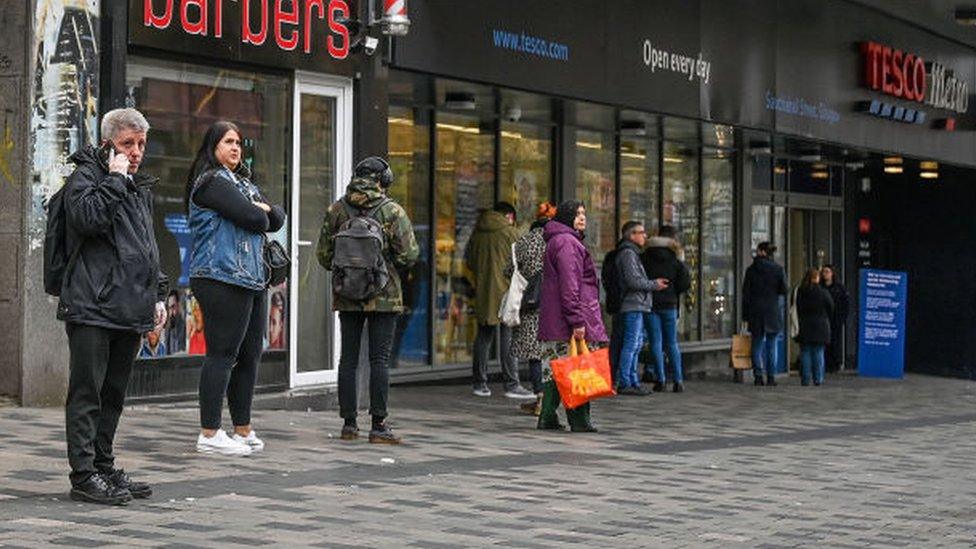
Social distancing measures are ongoing
The experience of other countries showed that periods of restrictions of less than 13 weeks led to the virus resurfacing again "because we haven't stopped it transmitting amongst lots of people", she added.
"We've now had quite a significant lockdown-type measure in the UK for a week, we know that we can tell whether that's making a difference within two weeks to three weeks so that modelling is being relooked at", she added.
Dr Calderwood said she was "optimistic" the high projected death toll of the virus could be avoided.
She said if people comply with the restrictions put in place, then scenarios published which suggest up to 260,000 excess deaths in the UK will not come to pass.
Dr Calderwood added: "We would hope we are looking at a more optimistic level given the range of measures we have put in, which are quite extreme, and also given the level of compliance.
"We are very hopeful that the huge figure of 260,000 excess deaths is not going to be the reality."
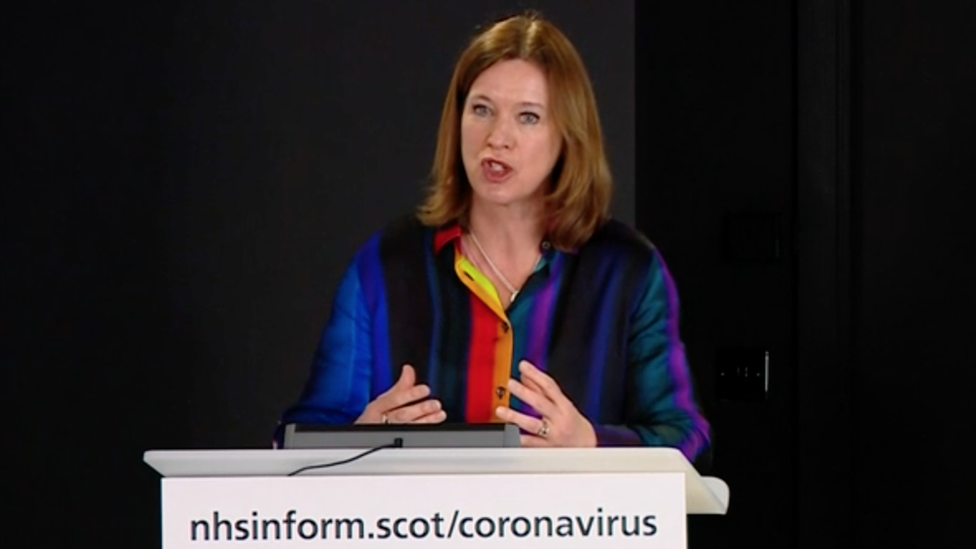
Dr Calderwood said restrictions placed on movement were needed for "at least 13 weeks" to stop the spread.
The virus peak is expected to happen across the UK at about the same time, Dr Calderwood said, but noted that the size of peak may be different across the country.
"London has been hit very hard, we've seen those numbers increase over the last number of weeks, [with] estimates of between two and three weeks [before reaching the peak]," she said.
"Our peaks might be smaller because we currently have fewer cases."
Asked whether there was enough ventilator capacity, Dr Calderwood reiterated that Scotland had already doubled capacity and that plans were in place to quadruple the ventilator capacity Scotland had before the outbreak.
She added: "Depending on how well these suppression measures work, we think we are coming close to having enough ventilators for the peak of the virus outbreak."
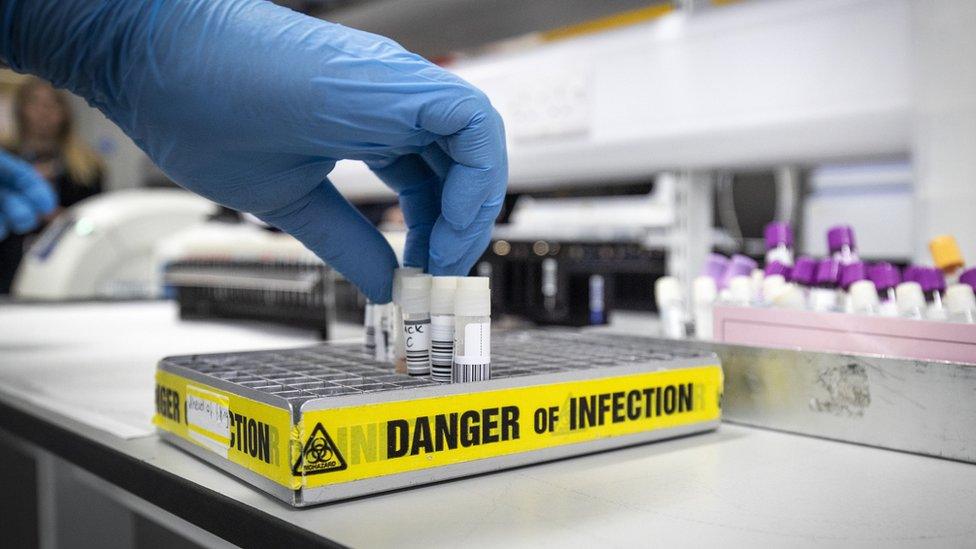
During a press conference on Sunday afternoon, Nicola Sturgeon announced that more than 34 million items of protective gear had been delivered to hospitals across Scotland in the past few weeks.
The first minister added that eight weeks' worth of PPE would be delivered up front in the coming week to all GP surgeries. Additional delivery staff will help the social care sector with PPE.
Ms Sturgeon also announced a new campaign called "Scotland Cares" to recruit volunteers to help with the coronavirus crisis.
Volunteers can register using the ReadyScotland.org, external website, where they will be given options such as being a returning health or care worker.
There will also be options to become a community reserve volunteer - co-ordinated by the Red Cross - join one of the existing schemes, or help with friends or neighbours.
- Published22 July 2020
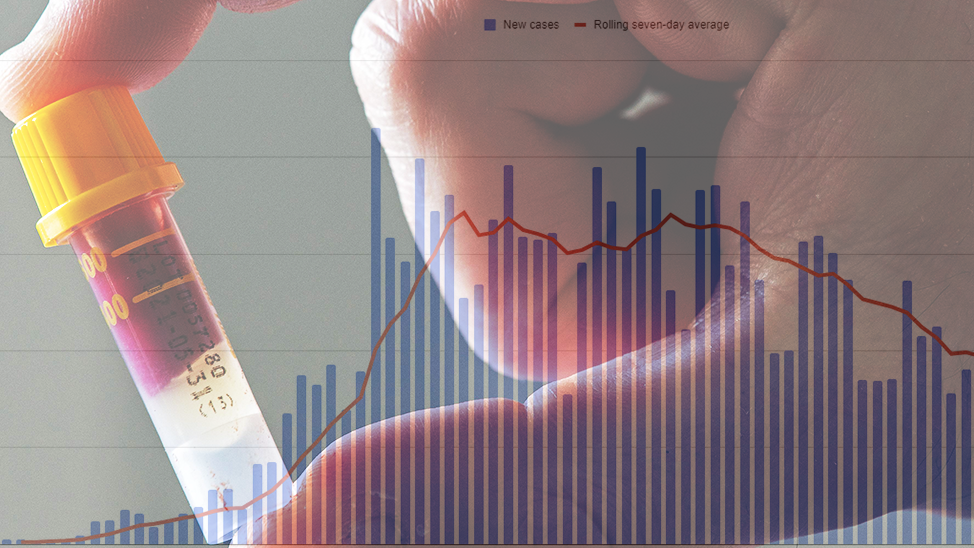
- Published23 March 2020
